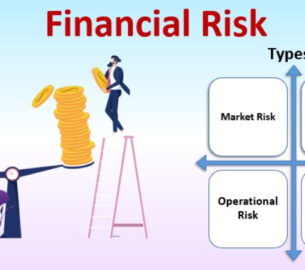The unprecedented Covid-19 pandemic caused chaos in the world. However, one of the most important lessons was planning and managing your Personal Finance to ensure a secure future. These are the key lessons learned from this tragedy:
1. To Manage Your Finances Effectively, Create A Financial Plan:
Personal financial planning is essential in today’s world. To ensure financial success, income, expenses, savings, investments, and credit should align with the family’s short and long-term needs, wants, and goals. In today’s unstable global economic environment, including the United States, it is crucial to take advantage of opportunities while preparing for unexpected circumstances. A financial plan can help you stay in control of all these situations. You should also review and update your plans regularly and make adjustments as necessary to meet changing needs and demands.
2. Importance To Have Both Health And Life Insurance:
Because life is full of surprises. It has been demonstrated to the rest of the world by the pandemic. It has also shown how unpredictable life can be. It is vital to ensure the financial stability and security of the family. It is vital to purchase life insurance policies with sufficient coverage to protect the family in the event of the breadwinner’s death.
A family policy that covers all family members is vital, particularly in light of rising healthcare costs and lifestyle-related diseases. These expenses can’t be ignored or negotiated because good health is a fundamental requirement. It is therefore important to ensure that everyone in the family has enough insurance.
3. Establish an emergency fund:
Establish an emergency fund before making any financial investments, That will help you stay afloat in times of financial hardship. This fund should contain at least 6-12 months of family income. This fund should also be easily and quickly accessible as cash, when and if necessary. The fund should not be considered sacred and should only ever be used in an urgent situation.
4.Avoid Falling Into The Debt Trap
In this age of increased consumerism, driven by a combination of variables such as increased purchasing power and product breakthroughs, inciting market tricks, and readily available personal credit options and facilities, it’s possible to fall into a debt trap. That is because interest accrues on outstanding loans, and the borrower’s debts grow exponentially. The debt trap can make financial planning more complicated and may even be financially fatal during economic crises.
5. Effective Investing:
Investing is to diversify among different asset types such as stock, gold and real estate, in addition to other investments. It helps minimize risk and maximizes profits. It is important to take into account the investment duration and the investment goals when choosing financial instruments. Consider, for instance, the stock exchange.
6. Living A Minimalist Life Is Possible:
We don’t need to have much to be happy. Increased consumption: A bigger home, a better vehicle, more clothes, and the latest gadgets are all examples of excessive consumption. It only serves to push our desires to the top and keeps contentment at a distance. Frugality, prioritizing needs over desires and developing sound spending habits will ensure financial security and help you feel good about your mental and emotional health.
Financial discipline and prudence will be required to navigate the ups and downs in life successfully. Although this pandemic will end in a brief crisis, it will help us prepare for the next hardship.












